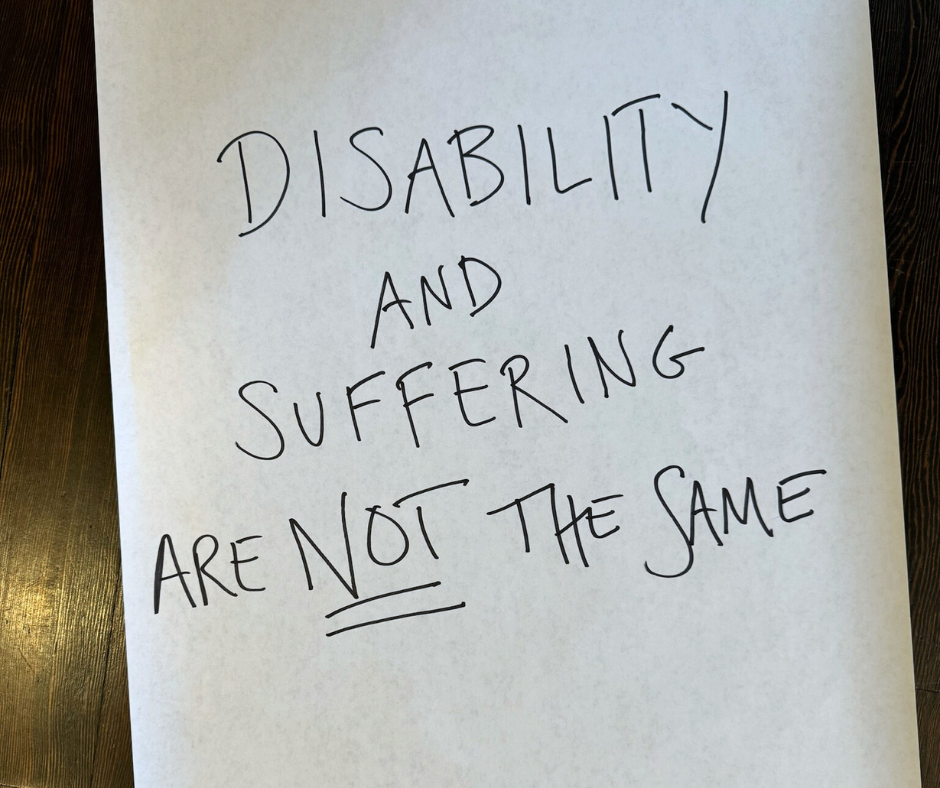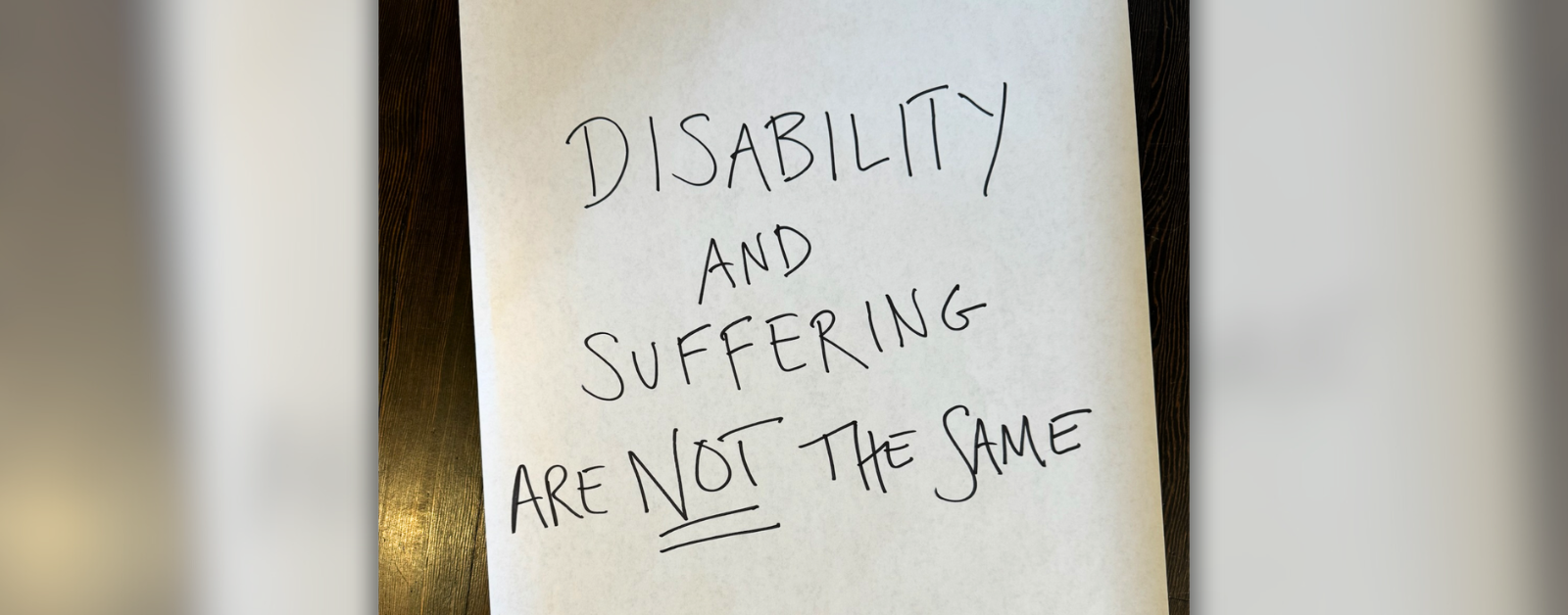Disability and suffering are not the same. I was so disappointed to read John McWhorter’s misunderstanding of disability in the NYT. He wrote:
“To say that someone “has” a disability hardly distracts us from the fact that the person, inherently, suffers because of it — this is baked into the very concept of disability whether we utter the verb or not.”
Let me start out by saying I respect and admire John McWhorter and I benefit from his column regularly. My respect for him made me all the more concerned by his words.
There are a few problems, as I see it. One, many people have disabilities without suffering from them, our daughter Penny included. Penny was a healthy baby from birth. She got 8 out of 10 on her APGAR score, came home from the hospital after two days, and still gets sick the least often of all our kids.
Two, when people with disabilities do suffer from physical ailments, if we conflate that suffering with their disability, we run the risk of thinking that just as their disability is not changing, nor will their suffering. We should seek to alleviate suffering, which does not mean we are seeking to alleviate disability.
Three, when people with disabilities suffer from non-physical means, it is often from the attitudes of people around them. Disabled people suffer from exclusion. They suffer from loneliness. They suffer from discrimination. These social issues are not as a direct result of their disability but a direct result of bigotry within our culture.
Four, language both reflects reality and shapes reality. Disability and suffering are not the same, and our language should reflect that distinction.

MORE WITH AMY JULIA:
Helping Kids With Disabilities Move Toward Independence
Disability and Self-Care Skills: Nail Clipping
Turning 18 and Guardianship Decisions
Subscribe to my newsletter to receive regular updates and news. You can also follow me on Facebook, Instagram, Twitter, Pinterest, and YouTube, and you can subscribe to my Love Is Stronger Than Fear podcast on your favorite podcast platform.



